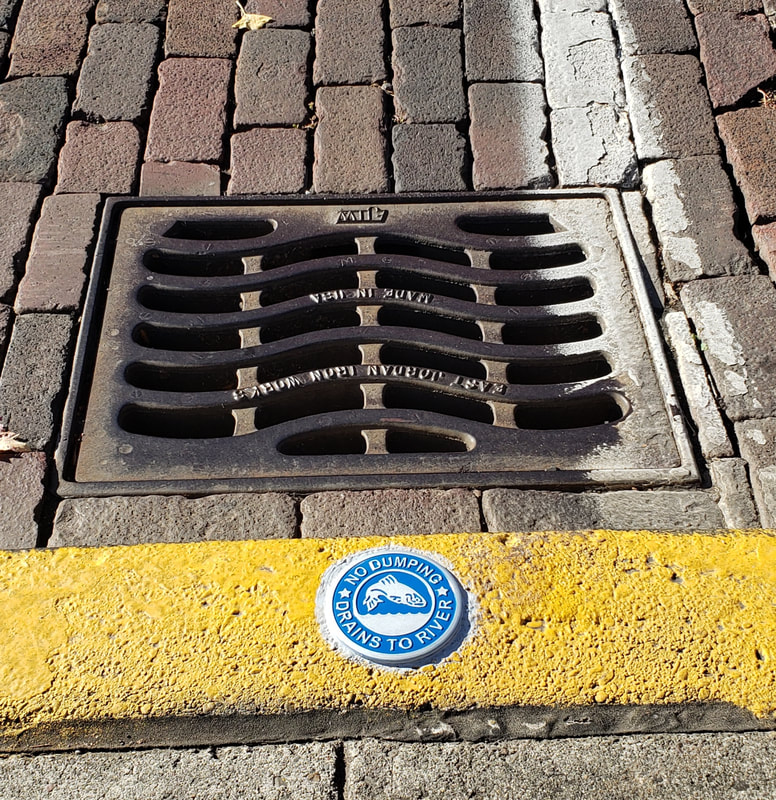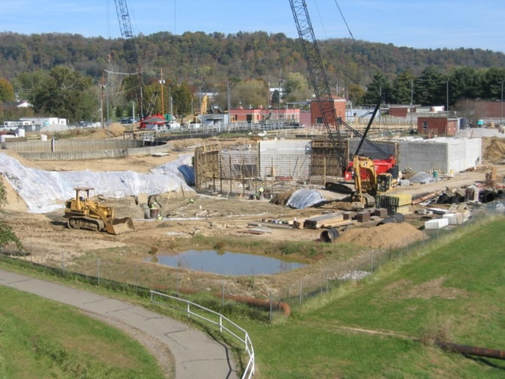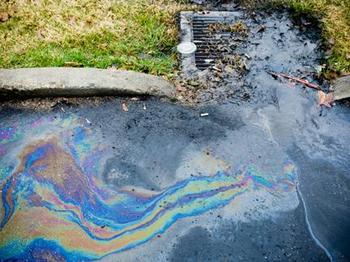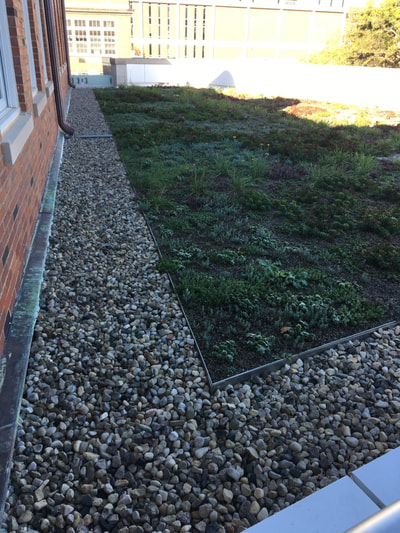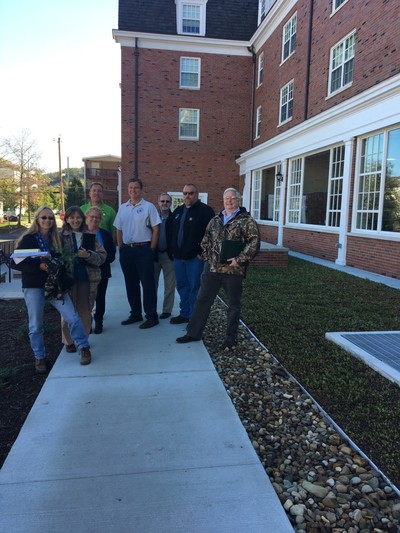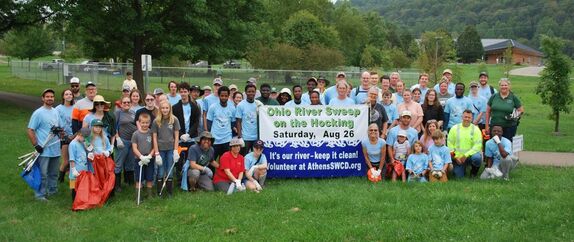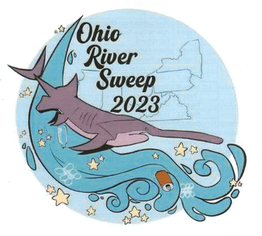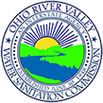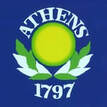City of Athens
Contractor Permit Training
Urban Stormwater
Stormwater pollution is considered one of the most significant water pollution problems today, according to the United States Environmental Protection Agency. Urban stormwater carries sediment, oil, grease, gasoline, lawn care chemicals, dust from tires and brakes, and bacteria from animal waste, all of which are pollutants that impair the streams and the Hocking River in the Athens area.
In June 2017, the Ohio Environmental Protection Agency (OEPA) required the City of Athens to obtain a Municipal Separate Storm Sewer System (MS4) General Permit. This permit requires the City to regulate stormwater inside the city limits. The permit specifies 6 minimum control measures that must be addressed in the OEPA mandated City of Athens Stormwater Management Program. These are:
In June 2017, the Ohio Environmental Protection Agency (OEPA) required the City of Athens to obtain a Municipal Separate Storm Sewer System (MS4) General Permit. This permit requires the City to regulate stormwater inside the city limits. The permit specifies 6 minimum control measures that must be addressed in the OEPA mandated City of Athens Stormwater Management Program. These are:
- Public Education and Outreach – provide educational programming to educate the public about stormwater issues.
- Public Involvement and Participation – develop activities to improve public stormwater awareness.
- Illicit Discharge Detection and Elimination – search for, identify, and eliminate unauthorized discharges to the city’s stormwater system; create a storm sewer mapping system; and map all residences that have private sewage systems in the city limits.
- Construction Site Stormwater Runoff Control – develop a program for the City to enforce the OEPA Construction Stormwater General Permit for construction projects within the city limits. This program requires persons performing construction to submit a stormwater control plan and permit application to the City Code Enforcement Office prior to construction.
- Post-Construction Site Stormwater Runoff Control – develop a program for the City to enforce the OEPA post-construction stormwater runoff control requirements for construction projects within the city limits.
- Pollution Prevention and Good Housekeeping – develop a program for examining sources of pollution within city departments and promoting good housekeeping measures to prevent pollution.
What is Urban Stormwater Run-off and What Can You Do To Reduce it?
In urban and suburban areas, much of the land surface is covered by buildings and pavement, which do not allow rain and snowmelt to soak into the ground. Instead, most developed areas rely on storm drains to carry large amounts of runoff from roofs and paved areas to nearby waterways. The stormwater runoff carries pollutants such as oil, dirt, chemicals and lawn fertilizers directly to streams and rivers, where they seriously harm water quality. (US EPA)
There are many ways that you as a landowner can help manage stormwater runoff. Some ways that you could capture or use water off of your rooftop would be rain barrels or rain gardens. Rain barrels allow you to capture the water to recycle and use for watering your flowers or even washing your car. Rain gardens allow the water to filter through the ground, while also getting the benefit of watering your plants. Other management practices you could use would be: picking up after your pets, sweeping debris from your driveway and road, using porous materials on your driveway, or even storing your chemicals properly. It only takes one person improving there management to help our waters quality. Let this change start in your household!
There are many ways that you as a landowner can help manage stormwater runoff. Some ways that you could capture or use water off of your rooftop would be rain barrels or rain gardens. Rain barrels allow you to capture the water to recycle and use for watering your flowers or even washing your car. Rain gardens allow the water to filter through the ground, while also getting the benefit of watering your plants. Other management practices you could use would be: picking up after your pets, sweeping debris from your driveway and road, using porous materials on your driveway, or even storing your chemicals properly. It only takes one person improving there management to help our waters quality. Let this change start in your household!
City of Athens Ordinance
|
In 2011, Athens City Council passed Ordinance 0-52-11 creating Title 5.07-Storm Water Regulations, in response to a growing national concern over urban storm water pollution. Urban storm water carries sediment, oil, grease, gasoline, lawn care chemicals, dust from tires and brakes, and bacteria from animal waste all of which are pollutants that impair the streams and the Hocking River in the Athens area. This Section contains regulations to:
- Require construction projects that disturb soil to get a storm water permit from the City and to have a storm water management plan using best management practices to prevent sediment from leaving the site. - Require any activity that generates storm water pollution to utilize best management practices to prevent pollution from leaving the site - Prevent illegal connections and discharges to the storm sewers. |
Recent Stormwater News
Ohio University Green Roof Project
On October 17, 2017, the City of Athens Stormwater Pollution Prevention Team toured several permanent stormwater control best management practices on the Ohio University Campus. The University installed green roofs at McCracken Hall and Jefferson Hall during renovation projects in 2016-17. The purpose of a green roof is to utilize the soil as a filter to remove pollutants while providing moisture for the plants and to absorb as much roof runoff as possible to minimize the increase the potential for offsite flooding. A side benefit is an attractive garden. The team thanks Ohio University for their hospitality and their commitment to green infrastructure.
On October 17, 2017, the City of Athens Stormwater Pollution Prevention Team toured several permanent stormwater control best management practices on the Ohio University Campus. The University installed green roofs at McCracken Hall and Jefferson Hall during renovation projects in 2016-17. The purpose of a green roof is to utilize the soil as a filter to remove pollutants while providing moisture for the plants and to absorb as much roof runoff as possible to minimize the increase the potential for offsite flooding. A side benefit is an attractive garden. The team thanks Ohio University for their hospitality and their commitment to green infrastructure.
City of Athens Stormwater Projects
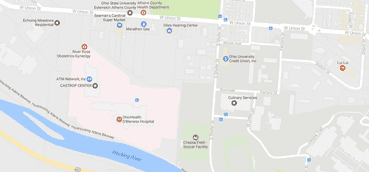
GPS Data Collection
The Athens SWCD Stormwater Coordinator is concluding the year’s GPS (Global Positioning System) data collection of the storm sewer system for the City of Athens. This year the focus has been on the west side area bordered by West Union St. on the north, Depot St. on the east, Oxbow Creek and the Hocking River on the south and United Behavioral Health on the west. 332 points were surveyed.
The Athens SWCD Stormwater Coordinator is concluding the year’s GPS (Global Positioning System) data collection of the storm sewer system for the City of Athens. This year the focus has been on the west side area bordered by West Union St. on the north, Depot St. on the east, Oxbow Creek and the Hocking River on the south and United Behavioral Health on the west. 332 points were surveyed.
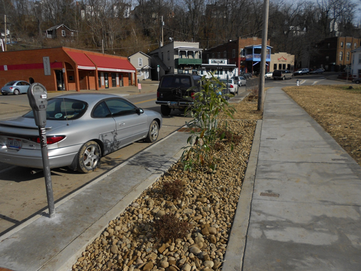
West Union Street Enhancement Project
Some of you may have noticed the street landscaping project on West Union Street in front of the old railroad depot. This is part of a storm water management project in the City of Athens. The storm sewer for this area drains about 140 acres of the west side of town and crosses West Union Street. under the new traffic circle.
The storm water management project consists of three parts: The storm water bio- retention boxes along the sidewalk into which the street runoff is directed for plant watering, pollutant removal, and infiltration; a grit removal vortex device buried adjacent and connected to the main storm sewer to remove grit and solids from the storm water; and a stream restoration at the outlet of the main storm sewer at the end of Depot Street to restore the natural habitat for the stream. The project is funded in part by the Ohio Environmental Protection Agency through their Storm Water Improvement Fund (SWIF). It is expected to be completed by June 2015. The Athens Soil and Water Conservation District partnered with the City of Athens to provide design input and public education for the project. If you want to learn more about this project click here for a copy of the brochure.
Some of you may have noticed the street landscaping project on West Union Street in front of the old railroad depot. This is part of a storm water management project in the City of Athens. The storm sewer for this area drains about 140 acres of the west side of town and crosses West Union Street. under the new traffic circle.
The storm water management project consists of three parts: The storm water bio- retention boxes along the sidewalk into which the street runoff is directed for plant watering, pollutant removal, and infiltration; a grit removal vortex device buried adjacent and connected to the main storm sewer to remove grit and solids from the storm water; and a stream restoration at the outlet of the main storm sewer at the end of Depot Street to restore the natural habitat for the stream. The project is funded in part by the Ohio Environmental Protection Agency through their Storm Water Improvement Fund (SWIF). It is expected to be completed by June 2015. The Athens Soil and Water Conservation District partnered with the City of Athens to provide design input and public education for the project. If you want to learn more about this project click here for a copy of the brochure.
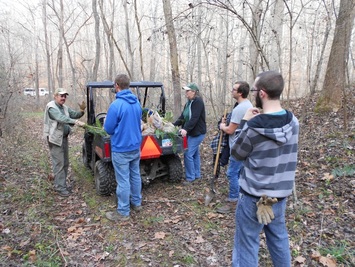
Union Street Stormwater Project Enhanced with Native Plants
As a native plant addition to the City of Athens’ Union Street Sustainable Stormwater Improvement project, students from Hocking College recently met with Steve Stone on his family farm to dig native ferns to transplant to the project site. A total of 45 ferns were transplanted. Steve Stone is the owner of Meadowview Tree Farm in Nelsonville Ohio and a board member of the Athens Soil and Water Conservation District. The students are members of Kim Caudill’s GeoEnvironmental Site Assessment class at Hocking College. The stormwater improvement project included removal of invasive species such as bush honeysuckle and replanting with native species. For more information about the stormwater improvement project visit http://www.ci.athens.oh.us/index.aspx?nid=310.
As a native plant addition to the City of Athens’ Union Street Sustainable Stormwater Improvement project, students from Hocking College recently met with Steve Stone on his family farm to dig native ferns to transplant to the project site. A total of 45 ferns were transplanted. Steve Stone is the owner of Meadowview Tree Farm in Nelsonville Ohio and a board member of the Athens Soil and Water Conservation District. The students are members of Kim Caudill’s GeoEnvironmental Site Assessment class at Hocking College. The stormwater improvement project included removal of invasive species such as bush honeysuckle and replanting with native species. For more information about the stormwater improvement project visit http://www.ci.athens.oh.us/index.aspx?nid=310.
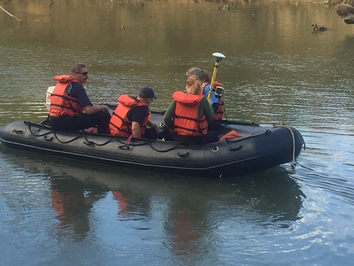
Hocking River Surveying
On November 5, 2015, the Athens Soil and Water Conservation District and the City of Athens Fire Department teamed up to survey Hocking River outfalls by boat. The city is in the process of mapping all pipe outfalls and stream discharges to the Hocking River for their stormwater program. Since 2012 the city has made an effort to identify these discharge points and storm sewers to update the storm sewer map and to look for and identify illegal discharges to the storm sewer system. The fire department participated in order to provide water rescue training for staff.
On November 5, 2015, the Athens Soil and Water Conservation District and the City of Athens Fire Department teamed up to survey Hocking River outfalls by boat. The city is in the process of mapping all pipe outfalls and stream discharges to the Hocking River for their stormwater program. Since 2012 the city has made an effort to identify these discharge points and storm sewers to update the storm sewer map and to look for and identify illegal discharges to the storm sewer system. The fire department participated in order to provide water rescue training for staff.
2023 Ohio River Sweep on the Hocking
A local trash pick-up. Keep our river clean!
The Athens Soil and Water Conservation District is pleased to announce that our 2023 Ohio River Sweep on the Hocking was a great success! Taking place on Saturday, August 26, 2023, the Sweep had 73 volunteers come out to collect trash and recyclables in an effort to keep our river clean. Volunteers collected 51 bags of landfill trash, 30 bags of recyclable materials and one tire from 3.3 miles of the Hocking River floodplain. Thanks so much to all those that came out to brave the humidity and get this job done!
The Athens Soil and Water Conservation District would also like to thank our collaborating partners: the City of Athens, City/County Health Department, Ohio University’s Office of Sustainability, Hocking Conservancy District, and the Ohio River Valley Sanitation Commission. Their efforts made this event possible.
The Athens Soil and Water Conservation District would also like to thank our collaborating partners: the City of Athens, City/County Health Department, Ohio University’s Office of Sustainability, Hocking Conservancy District, and the Ohio River Valley Sanitation Commission. Their efforts made this event possible.
Related links:
- Athens City Code Office Storm Water Permit http://www.ci.athens.oh.us/index.aspx?NID=216
- Rainwater and Land Development Manual http://epa.ohio.gov/Portals/35/storm/technical_assistance/RLD_11-6-14All.pdf
- Ohio EPA Storm Water Program http://epa.ohio.gov/dsw/storm/index.aspx
- Athens City Code Office Storm Water Permit http://www.ci.athens.oh.us/index.aspx?NID=216
- Rainwater and Land Development Manual http://epa.ohio.gov/Portals/35/storm/technical_assistance/RLD_11-6-14All.pdf
- Ohio EPA Storm Water Program http://epa.ohio.gov/dsw/storm/index.aspx
